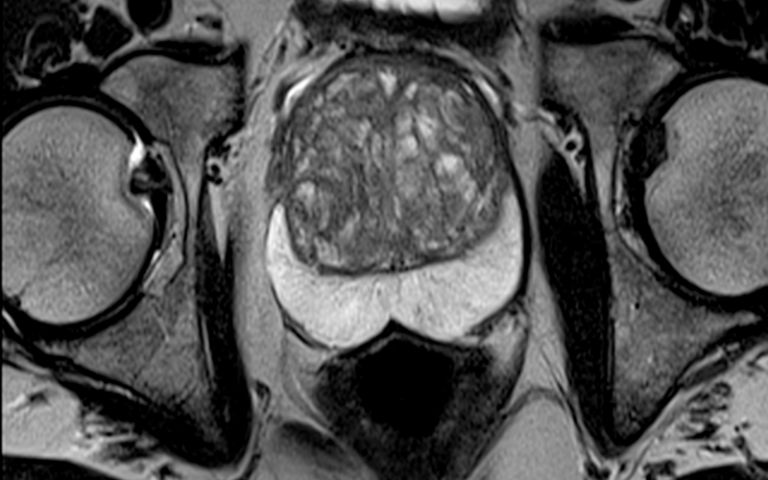A new imaging technique radically improves prostate cancer diagnosis and treatment
A new MRI scanning technique developed by UCL scientists and clinicians has transformed the diagnosis and treatment of prostate cancer, saving lives and reducing healthcare costs.

8 October 2020
Prostate cancer is the most common cause of cancer in men in the UK, with more than 48,000 cases diagnosed each year. Despite this, diagnostic tests and treatments have changed little in the past 50 years.
The condition is traditionally diagnosed using a blood test that measures the levels of PSA –a hormone produced by the prostate gland, followed by a painful and invasive needle biopsy via the rectum, using ultrasound as a guide to locate the prostate gland.
“For a hundred years, we’ve been treating prostate cancer blindly, because the prostate gland is difficult to access: it’s hidden away behind a bone and close to the rectum,” says Professor Mark Emberton, Dean of the UCL Faculty of Medical Sciences, who led the research with Professor Caroline Moore (UCL Division of Surgery & Interventional Science).
““For a hundred years, we’ve been treating prostate cancer blindly, because the prostate gland is difficult to access.”
A new scanning technique developed at UCL uses multi-parametric Magnetic Resonance Imaging (mp-MRI) that, for the first time, allows specialists to identify tumours in the prostate without the need for invasive, risky and sometimes unnecessary procedures.
Millions of men are set to benefit from the new diagnostic approach, with thousands having their cancer diagnosed earlier and many more avoiding unnecessary and painful biopsies.
The procedure is also reducing the number of men requiring removal of the whole prostate gland, reducing the number affected by long-term side effects such as urinary incontinence and sexual dysfunction.
In 2019 the National Institute of Clinical and Care Excellence (NICE) amended its recommendation for the diagnosis of prostate cancer and identified mp-MRI as a cost-effective intervention in the diagnostic pathway for men at risk.
To maximise the use of the new diagnostic tool, the team at UCL have standardised the procedure and led an international train-the-trainers programme to improve reliability and performance.
“The new technology, which is now available throughout the world, gives us a detailed picture of the tumour, allowing us to grade tumours according to their size, stage and severity, and tailor treatment much more effectively,” says Professor Emberton.
 Close
Close


